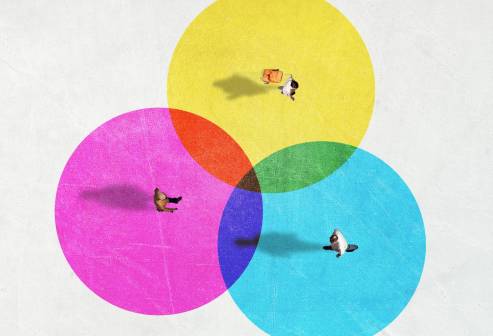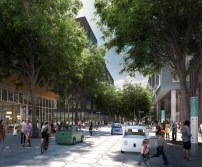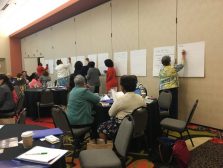Data experts, public officials and academics unite at health and human services workshop

The MetroLab Network — a unique initiative that connects universities with smart city efforts — concluded its second workshop Wednesday, a two-day event in Seattle focused on the intersection of data and health and human services.
Throughout the event, panel members, keynote speakers and interactive workshop participants examined how data could be used to address issues ranging from societal racism to delivery of clean drinking water. Though the event is over, the network’s executive director, Ben Levine, said it was only the beginning of a broader portfolio of work the group hopes to cultivate through new partnerships between its members.
“More than an event and an opportunity to bring people together, it’s about starting a dedicated effort that will reach across our network and think about both what types of projects we can help facilitate and also what kinds of infrastructure solutions there are,” Levine said. “Whether its data-sharing processes, is it anonymization processes? What are some of the more meta-issues that govern some of the activities in these cities and universities in human service activity where there’s obviously heightened consideration about privacy and sensitivity of data?”
The distinguishing feature of the event was a sense of community and shared purpose among a group of people who had not necessarily met before. There were academics, politicians, administrators and data wonks, each discipline concerned with a slightly different aspect than the next, but all with common goals in mind.
MetroLab is crucial for its potential to provide research and development, said attendee Sharon Sputz, director of strategic programs at the Data Science Institute at Columbia University.
“Cities need an R&D arm and they don’t have an R&D arm,” she said. “They don’t have it in many, many ways. They don’t even have the ability to really hire those kinds of people. But what do all big cities have? All big cities have universities. They all have academic university partners. So if we can figure out a way to be the R&D support to our local cities, we can help them advance the technologies for the benefits of our cities.”
Some of the most difficult issues, like homelessness, poverty and unemployment, are challenging because they are so broad in their impact and relevance. Cross-disciplinary approaches like those advocated by the MetroLab help make those challenges appear less daunting, Sputz said.
“I am of the firm belief that education is where we really need to focus and not just on the university level but really we need to improve our education around the country in K-12 and so I am thinking about what needs to happen to influence that,” she said.
Hands-on moments
Each attendee seemed to bring a different set of priorities or sometimes a specific project that could advance with the network’s help. During a workshop session on the second day, those who had traveled to Seattle with a data project rotated through tables, receiving feedback and ideas from researchers or city officials with complementary skill sets and perspectives.
The event was more hands-on than expected, said Jennifer Muilenburg, data management librarian from the University of Washington.
“What’s really interesting is that it was a data-focused event, but a lot of the people here have found it’s not a data issue so much as a people issue where they need to communicate their issues better to their constituents,” she said. “It’s communicating the need for a specific kind of data or convincing someone they want to collect that data or share that data and then reporting out to people who are getting the data, what it’s good for — it’s a human problem.”
Events like these are important because now is the time to galvanize on human services issues, said Dan O’Brien, assistant professor at Northwestern University and co-director of the Boston Area Research Initiative (BARI).
“A lot of the smart cities stuff has been centered around service delivery and engineering problems, logistics problems and it’s been trickier to get into the world of really thinking about how you use the same data analytics techniques to improve health and human services,” he said. “It was definitely energizing. I think it did a good job of getting us all talking and engaged around the idea.”
Many at the conference were energized by the recurring topic of privacy. Dan Hoffman, chief innovation officer at Montgomery County, Maryland, said his favorite part of the event was a privacy keynote delivered by Ryan Calo, a professor at the University of Washington Law School.
“That one was really focused in on the issues that we will all face and it’s very unclear what to do about it, because these are bigger societal issues,” he said. “You’re talking about saving lives, but potentially having to give up what we’ve traditionally seen as things that are sensitive or private.”
Specifically, Hoffman noted that an individual’s location — one of the most personal pieces of information there is — is also becoming one of the easier pieces of information to track. It’s also one of the most valuable, and there lies the rub, Hoffman said.
“There is a sense that I have the right to be hidden if I want to be hidden,” he said. “These days, we’re talking about solving major issues. If maybe we give up that right to be hidden a little more often, it’s things like that that I think one city, one county alone can not solve. It’s got to be solved by researchers, it’s got to be solved by policy folks and it’s only through dialogues like this that I think we begin to craft a message or hear different sides to what are very complicated issues.”
Videos of the event’s presentations will be soon be available online and a link will be posted here when available.






